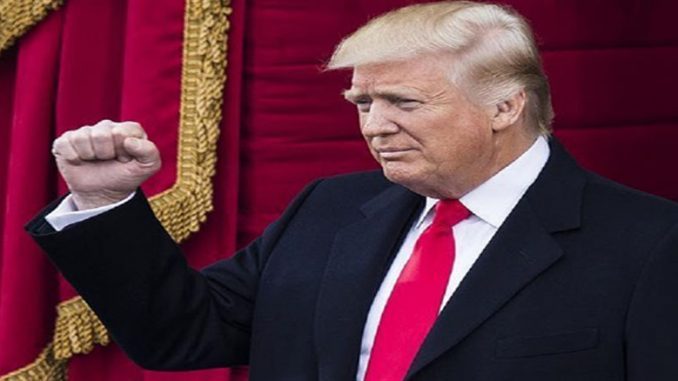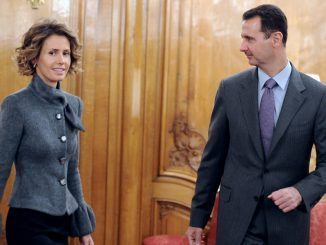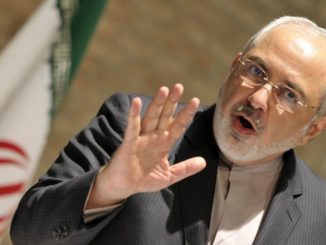
US President uses his first interview to say he ‘absolutely’ supports safe areas for refugees. Kremlin, not consulted about the plan, says that it should be carefully considered.
US President Donald Trump said on Wednesday he “will absolutely do safe zones in Syria” for refugees fleeing violence in the war-torn country.
Saying Europe had made a tremendous mistake by admitting millions of refugees from Syria and other Middle Eastern trouble spots, Trump told ABC News in an interview: “I don’t want that to happen here.”
“I’ll absolutely do safe zones in Syria for the people,” he added, without giving details.
According to a document seen by Reuters on Wednesday, Trump is expected to order the Pentagon and the State Department in coming days to craft a plan for setting up the “safe zones,” a move that could risk an escalation of US military involvement in Syria’s civil war.
The draft executive order awaiting Trump’s signature signaled the new administration was preparing a step that Trump’s predecessor, Barack Obama, long resisted, fearing the potential for being pulled deeper into the bloody conflict and the threat of clashes between US and Russian warplanes over Syria.
“The Secretary of State, in conjunction with the Secretary of Defence, is directed within 90 days of the date of this order to produce a plan to provide safe areas in Syria and in the surrounding region in which Syrian nationals displaced from their homeland can await firm settlement, such as repatriation or potential third-country resettlement,” the draft order said.
Creation of safe zones could ratchet up US military involvement in Syria and mark a major departure from Obama’s more cautious approach. Increased US or allied air power would be required if Trump chooses to enforce “no fly” restrictions, and ground forces might also be needed to protect civilians in those areas.
Still, the document gave no details on what would constitute a safe zone, exactly where they might be set up and who would defend them. Jordan, Turkey and other neighboring countries already host millions of Syrian refugees. The Turkish government had long pressed Obama, without success, for the creation of a no-fly zone in Syria on its border with Turkey.
Turkey responds
Responding to Trump’s statement, Turkish foreign ministry spokesman Huseyin Muftuoglu said on Thursday Turkey is waiting to see the outcome of his pledge to order safe zones.
“We have seen the US President’s request for conducting a study. What’s important is the results of this study and what kind of recommendation will come out,” Muftuoglu told reporters at a briefing in Ankara.
The draft raised the possibility of establishing those safe havens in neighboring countries but did not elaborate.
The Kremlin meanwhile said a plan for safe zones should be thoroughly considered.
Asked to comment on the draft executive order, Russian President Vladimir Putin’s spokesman, Dmitry Peskov, underlined the importance to “thoroughly calculate all possible consequences” of the measure. He noted on Thursday that “it’s important not to exacerbate the situation with refugees.”
Peskov said the Trump administration did not consult Russia before announcing the plan to establish safe zones.
“No, our American partners did not consult with us. It’s a sovereign decision,” Peskov said on a conference call with reporters.
“It is important that this (the plan) does not exacerbate the situation with refugees, but probably all the consequences ought to be weighed up.”
During and after the presidential campaign, Trump called for no-fly zones to harbor Syrian refugees as an alternative to allowing them into the United States. Trump accused the Obama administration of failing to properly screen Syrian immigrants entering the United States to ensure they had no militant ties.
Obama’s aides have insisted the vetting was meticulous and none of the Syrian refugees allowed in have been implicated in any attacks.
On the campaign trail, Trump gave no details as to how he might go about creating such havens, except to say that he would ask Gulf states to help pay.
“All the questions of setting up a safe zone are still there,” a US official said. “If you’re going to declare a safe zone, there’s a lot of other things” that would have to be analyzed and put in place before it becomes feasible.
Among the biggest questions would be how to avoid confrontations with Russian forces in Syria helping keep Al-Assad in power.



